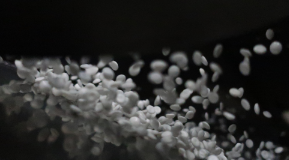Engaging our stakeholders on sustainability
At DuPont, we regularly engage with civil society organizations around the world, and we’re active in multiple sustainability initiatives. Our businesses and leaders have a long tradition of sustainability leadership.
We are founding membership in the World Business Council for Sustainable Development (WBCSD), an early adopter of the UN Global Compact (UNGC), and have been collaborating for years with industries, national governments, international bodies, and others to advocate for action on climate change.
Through our memberships in industry organizations, we’re collaborating to point the specialty products industry in an increasingly sustainable direction.
We are an active member of the World Business Council for Sustainable Development, participating in working groups that advance sustainability priorities around circularity, climate and energy, mobility, water stewardship and more. In the United States, we are actively contributing to the development of the American Chemistry Council’s (ACC) new sustainability metrics, and we helped to create the European Chemical Industry Council (Cefic) Mid-Century Vision, which sets out a path for robust sustainability in the European chemical industry by 2050. DuPont is also a member of the World Resource Institute Corporate Consultative Group, a network of Fortune 500 companies that come together to advance sustainable business practices, mitigate risks, and support sustainable growth.
We engage directly with our customers, investors, suppliers, and other stakeholders on our sustainability efforts, to ensure that these stakeholders have accurate, credible information about our company, and to communicate how we’re considering their priorities within our own strategy. We engage government stakeholders primarily through meetings with member and jurisdictional committee staff, including the Senate Environment and Public Works Committee and House Energy and Commerce Committee in the U.S.
|
Stakeholder group |
Feedback priorities |
How we address stakeholder needs |
|---|---|---|
|
Customers |
|
|
|
Investors |
|
|
|
Employees |
|
|
|
NGOs and Communities |
|
In 2020, we:
|
|
Suppliers |
|
|
With our diverse portfolio of businesses, global footprint, and extensive operations, DuPont operates a highly complex, integrated supply chain. While it’s difficult to succinctly summarize every aspect of our supply chain, DuPont businesses process constituent materials through manufacturing stages to produce goods for our customers. DuPont works with approximately 131,000 suppliers from 53 countries worldwide. In 2020, we spent approximately $12.9 billion with these suppliers, $563 million of which was spent on energy and feedstock.
All DuPont suppliers are expected to uphold the DuPont Supplier Code of Conduct, which includes the principles of the UNGC and the International Labour Organization (ILO), and details supplier expectations on matters of the environment, labor, human rights, and impacts on society. We include the Supplier Code of Conduct in our Terms and Conditions for all supplier purchase orders. This is in addition to existing contract language and other mechanisms that are in place to make sure our suppliers adhere with our Human Rights Policy, Supplier Code, and with all applicable laws and regulations.
We evaluate all new suppliers on matters of product quality management, security, business ethics and transparency, climate change and water security practices, human rights due diligence, and operational excellence. We are currently developing a more robust, risk-based supplier engagement program to help evaluate and minimize supply chain risk across multiple dimensions of sustainability for our existing suppliers.
Through our Supplier Diversity Program, we’re working to include small and diverse businesses among our sources of supply, and help these businesses develop into competitive suppliers.
We work closely with local, small, and diverse suppliers to help them understand the DuPont business model and other elements of our procurement strategy.
Guided by 11 key performance indicators (KPIs), our goals include increasing the total amount of our spending with these suppliers, ensuring that they’re included in our competitive bid process, and sponsoring and attending outreach events. We engage our top suppliers to support supplier diversity, and we reinforce this expectation in our Supplier Code of Conduct, which encourages our suppliers to develop a diverse supply base themselves in support of the materials and services they provide to us. In fact, one of our KPIs is measuring “Tier II” spend – what our suppliers spend with diverse suppliers in the performance of their work with DuPont.
We publish our Position Statements online, so that stakeholders will know where DuPont stands on key industry-related issues such as Climate Change, Human Rights, Product Safety and Transparency, and more. We are committed to transparency by submitting information about our climate and water performance to CDP, releasing a sustainability report following Global Reporting Initiative (GRI) and Sustainability Accounting Standards Board (SASB) Standards, and completing numerous stakeholder surveys and questionnaires.
Stakeholders who have comments or questions about sustainability at DuPont can email our Corporate Sustainability Team at sustainability@dupont.com.
Download our 2021 GRI Index for more details on our memberships and associations, and for additional information on how we engage our stakeholders on key sustainability topics like sustainable procurement, health and safety, water stewardship, climate change, circular economy, and more.
INNOVATE
PROTECT
EMPOWER








